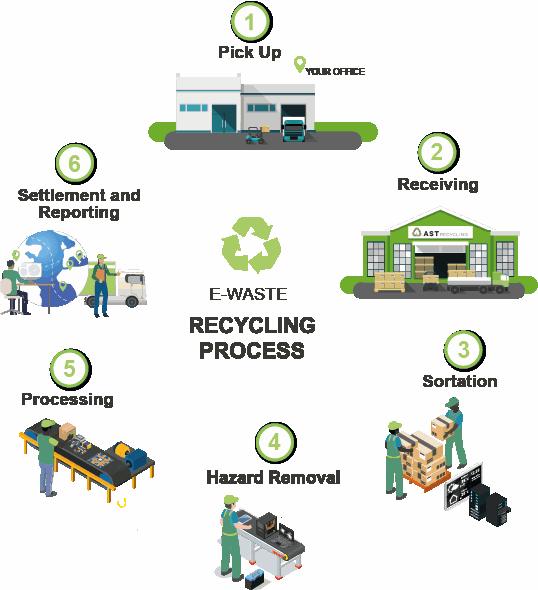E-WASTE
GAUTENG LAUNCHES
The Gauteng province accounts for over 50% of e-waste in the countr y, which is growing at a rate three times faster than any other form of waste.
A
bout 360 000 t of e-waste is generated each year across South Africa, with Gauteng responsible for about 55% of that. As the pressure of e-waste mounts on the country, the Gauteng government says this situation cannot continue and has launched a groundbreaking e-Waste Management Strategy in partnership with the University of Johannesburg (UJ). The aim is to tackle the global e-waste problem. The Gauteng Premier, David Makhura; MEC for Finance and e-Government, Nomantu Nkomo-Ralehoko; Deputy Vice Chancellor of UJ: Research and Innovation, Professor Saurabh Sinha; and Themba Ndlovu from the National African Federated Chamber of Commerce and Industry (NAFCOC) – and other business leaders – launched the e-waste management solution in March 2022. Premier Makhura said it was a proud moment to witness the launch of the e-waste strategy, which responds directly to the ever-increasing volumes of e-waste. “This launch is aimed at addressing both the mounting e-waste and the stubborn unemployment crisis. The e-waste management
38
M AY 2 0 2 2
|
ReSource
strategy and par tnership with UJ creates of electronic gadgets and electrical equipment an ecosystem to discard, recycle or donate – has become a worldwide environmental e-Waste products in a manner that creates concern that requires a coordinated response small businesses and job opportunities among and productive partnerships,” he added. the youth,” said Makhura. There will be training programmes for The Premier further added that this was collectors, separators and entrepreneurs a paradox, as cities and urban regions – star ting with training 200 young are experiencing the benefits of people immediately. By 2024, technology but are also facing they expect to have over a mounting problem of 2 800 young people who waste management and have been trained waste disposal as a and employed in critical dimension this e-waste of the broad management pilot environmental and programme. climate crisis. The strategy “Millions of will bring together tonnes of waste government, the 360 000 t of e-waste is generated are filling landfill private sector each year across South Africa, sites and municipal and universities ef for ts at turning to train the youth, with Gauteng responsible for waste into energy are not SMMEs and waste about 55% of that moving at an acceptable pickers and empower pace in our municipalities. them to take full advantage As a result of the rapid pace of of the economic oppor tunities technological change, the management of of the e-waste subsector of the waste and e-waste – that is, the disposal and recycling circular economy.
360 000 t





















